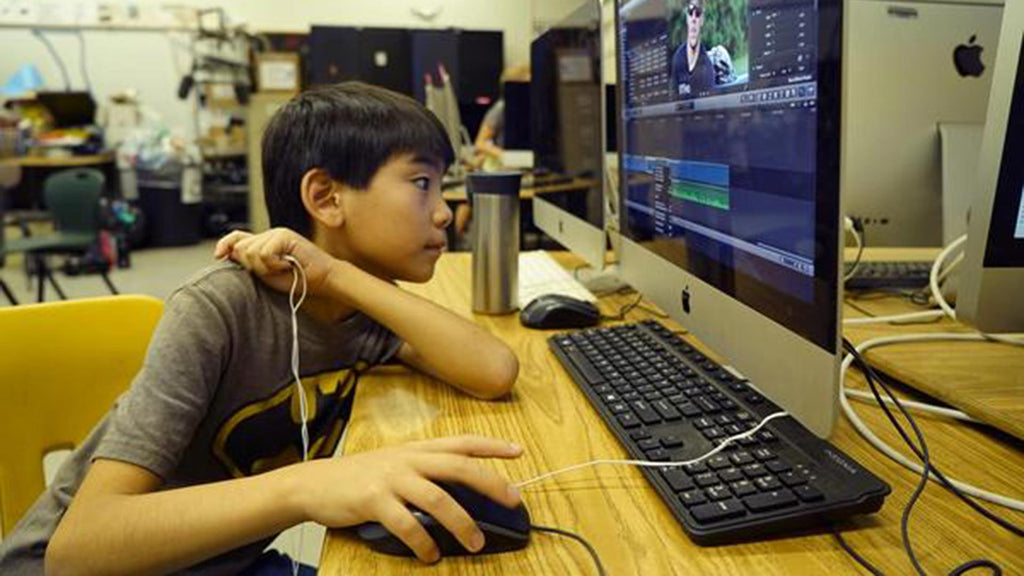
Day 3: Teaching Documentary Filmmaking With Insane Mountain Biking
On the third day we are going to edit the documentary Insane Mountain Biking. This project is the story of Andrew Ingram, a talented mountain biker who is sponsored by several athletics apparel companies, talking about his dream to become a professional cyclist.
What I like about this project is that we show a what the bulk of professionally edited projects really are: interviews intercut with b-roll. Our first lesson is to cut down a ten minute interview into a three minute string out. Students will need to decide if they want to tailor their story more towards Andrew’s athletic sponsorships or more towards his dreams.
After they edit their string out I give the class some bad news: they need to take out an additional thirty seconds from the string out! The class will groan. At this point I bring one of the student’s string out’s to the front of the room. Together we take thirty seconds out of their string out. I pause after each line and ask, “does this help the sponsorship story, the dream story, or neither? Which story do you want to tell?” It’s amazing how fast that cut gets trimmed up.
In the afternoon, before we b-roll their string outs, it’s time for a treat. I’m going to introduce the class to the main concepts of documentary filmmaking. They are:
Documentaries:
- Are non-fiction.
- Try to teach the viewer.
- Give the viewer a new experience.
- Make a record of an event.
Next I introduce the five different kinds of documentaries; Poetic, Expositional, Observational, Participatory, and Reflexive - with fun examples of each.
Here is an overview and an example of each Type of Documentary:
Poetic
- The filmmaker just wants you to experience something.
- There is no narrator or interviewee.
- Story is told through images and sounds alone.
- Example: The secret world of Foley.
Expositional
- We only have a voice of God narration.
- The goal is to learn something.
- One example is the BBC’s Life.
Observational
- There is no narrator.
- Story is told by the subjects of the documentary.
- Filmmakers do not actively voice an opinion.
- Example: Dollhouse.
Participatory
- The filmmaker is in the movie.
- The filmmaker has a point of view.
- The filmmaker is trying to make a bigger point.
- Examples: Anything by Michael Moore, Supersize Me, and Dirty Jobs.
Reflexive
- The filmmaker is in the movie.
- The filmmaker just wants you to think critically.
- The story is only about this one thing.
- Examples: Stories We Tell, Cat Fish.
Alright, the fun is over. Now it’s back to work.
The students cut down their projects I finally allow them to add all the fun b-roll that the Insane Mountain Biking project has.








